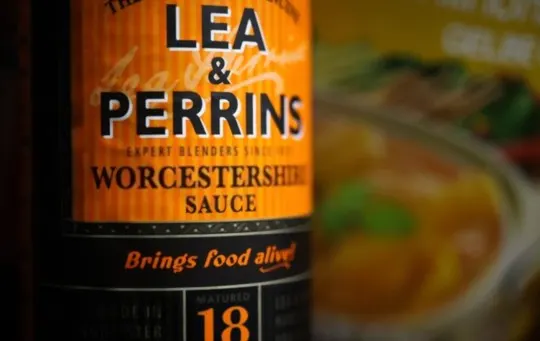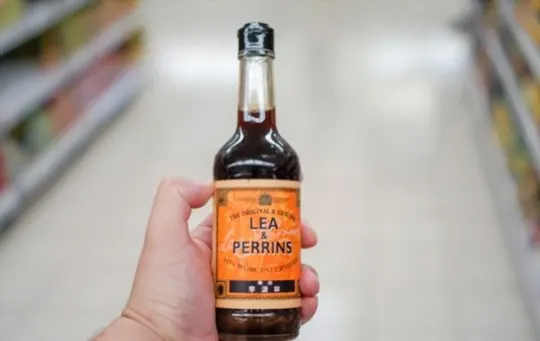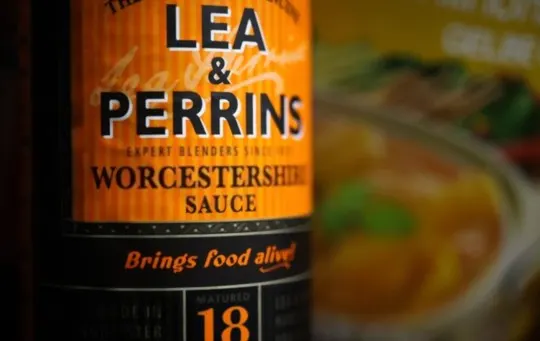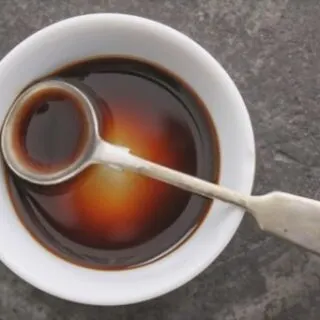Do you keep Worcestershire sauce in your pantry? You are not alone!
In fact, it’s a popular condiment that is often used to elevate the flavor of many dishes.
But do you ever find yourself wondering how long it lasts and if it goes bad?
If so, you’ve come to the right spot.
We will breakdown all of your questions surrounding this beloved staple as well as provide helpful storage tips so that you can always have it on hand for whatever life throws at you – no matter what day or meal.
What is Worcestershire Sauce?

Worcestershire sauce is a fermented liquid condiment that originates from the county of Worcestershire in England.
The main ingredients in Worcestershire sauce are vinegar, soy sauce, anchovies, onions, garlic, tamarind, and spices.
It is used as a seasoning or marinade for meat, fish, and poultry dishes.
Worcestershire sauce has a pungent, savory flavor that enhances the taste of food.
The exact origins of Worcestershire sauce are unknown, but it is thought to have been created by two chemists from Worcester in the early 1800s.
The chemists were trying to recreate a similar sauce that was made in India.
They eventually came up with their own recipe and began selling it commercially.
Worcestershire sauce is now produced all over the world and is a staple ingredient in many kitchens.
It can be used in a variety of ways, such as a marinade for meat or fish, added to soups or stews, or simply used as a condiment on its own.
Worcestershire sauce can also be used as an ingredient in cocktails, such as the classic Bloody Mary.
How to Store Worcestershire Sauce?
Worcestershire sauce is a popular condiment that can be used to add flavor to food.
However, it is important to store Worcestershire sauce properly in order to maintain its quality and prevent it from going bad.
Worcestershire sauce should be stored in a cool, dry place.
It does not need to be refrigerated, but storing it in a cool place will help to prolong its shelf life.
Once opened, Worcestershire sauce should be used within 6 months.
To further extend the shelf life of Worcestershire sauce, it can be stored in the fridge after opening.
This will keep the sauce fresh for up to 1 year.
When storing Worcestershire sauce, be sure to keep it in a tightly sealed container to prevent it from drying out or becoming contaminated.
How Long Does Worcestershire Sauce Last?

Worcestershire sauce is a fermented condiment that has a shelf life of two to three years.
The sauce is made with anchovies, vinegar, sugar, salt, and spices.
After the ingredients are combined, they are aged in wooden casks for 18 months to three years.
Worcestershire sauce will last for two to three years when stored in a pantry.
The sauce will last for one year when stored in the fridge after it has been opened.
Worcestershire sauce does not need to be refrigerated and can be stored at room temperature.
If you notice that the Worcestershire sauce has changed color or consistency, it has most likely gone bad and should be discarded.
How to Tell If Worcestershire Sauce is Bad?

Worcestershire sauce is a fermented condiment that has a shelf life of about two years.
After that, the sauce will start to lose its flavor and potency.
If you’re unsure whether or not your Worcestershire sauce has gone bad, there are a few things you can look for.
The first thing to do is check the expiration date on the bottle.
If it’s been more than two years since the sauce was manufactured, it’s likely past its prime.
Even if the sauce hasn’t expired yet, it may still be starting to lose its flavor.
Another way to tell if Worcestershire sauce has gone bad is by looking at the color of the sauce.
If it’s starting to turn brown or black, that’s a sign that it’s no longer fresh.
The sauce may also have a sour smell, which is another indication that it’s no longer good.
If you notice any of these signs, it’s best to throw out the Worcestershire sauce and buy a new bottle.
Can You Freeze Worcestershire Sauce?

Though you may not think of Worcestershire sauce as a common ingredient, it actually has a long shelf life and can be stored in a number of ways.
One popular method is freezing, which can help to prolong the sauce’s flavor and prevent it from going bad.
When freezing Worcestershire sauce, it’s important to use an airtight container.
This will help to prevent freezer burn and keep the sauce from absorbing any unwanted flavors or odors.
Once sealed, the sauce can be stored in the freezer for up to six months.
When thawing, be sure to do so slowly in the refrigerator to avoid damaging the delicate flavor balance.
With proper storage, Worcestershire sauce can be a versatile and long-lasting addition to your pantry.
Conclusion
Based on everything we know about Worcestershire sauce, it is safe to say that it does not go bad.
However, it is possible for the quality to decline over time.
If you notice that your Worcestershire sauce has been sitting on the shelf for a while, it might be a good idea to give it a smell before using it.
If it smells off, it’s probably best to discard it.
However, if it smells fine, it should be safe to use.

How Long Does Worcestershire Sauce Last? Does it Go Bad?
Ingredients
- Worcestershire sauce
- Air-tight containers or Ziplock bags
- Labels and markers
Instructions
- Store your product in an labelled container in a cool, dark place like the pantry or fridge.
- If your food is frozen, allow it to thaw in the fridge before cooking.
- Make sure to look for signs that your food has gone bad before eating it.

Carrie is a food writer and editor with more than 15 years of experience. She has worked for some of the biggest names in the food industry, including Bon Appétit, Food & Wine, and Martha Stewart Living.
As the Editor in Chief of IntroChicago.com, Carrie oversees all of the content on the site. She also manages the team of contributing writers and editors, who help to create delicious recipes, helpful tips, and informative articles that you’ll find on the site.
A native of the Chicago area, Carrie is passionate about all things food. She loves trying new restaurants and experimenting with new recipes in her kitchen. She’s also a graduate of the Culinary Institute of America, so she knows a thing or two about food!
